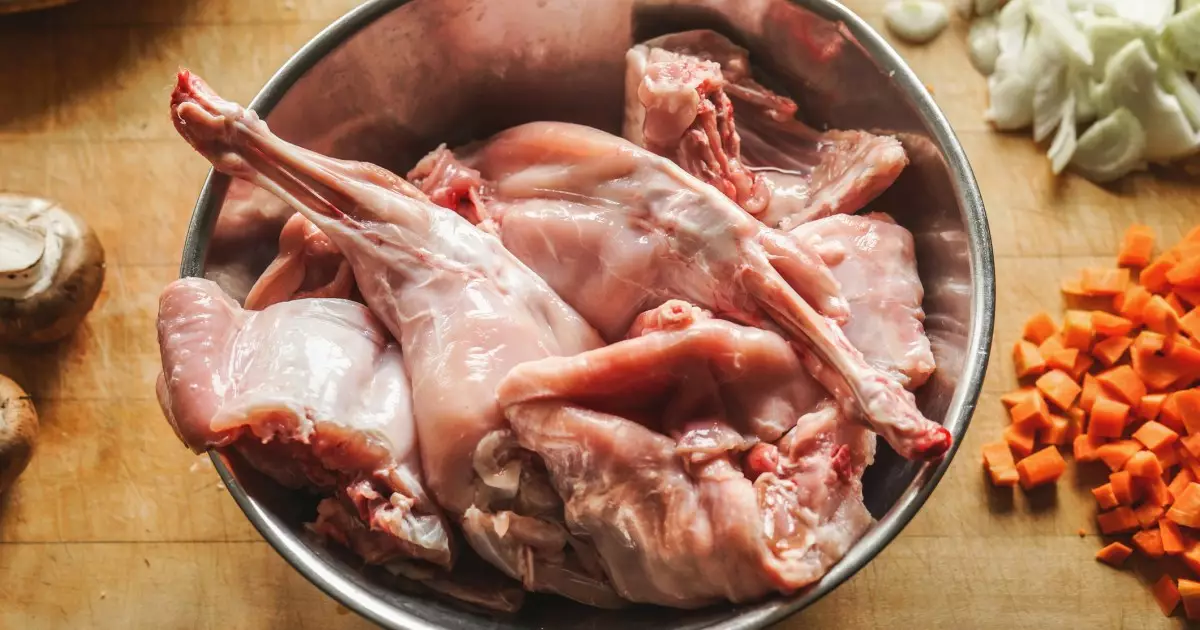Many pet owners are exploring various dietary options for their canine companions, and rabbit meat is emerging as an excellent alternative. Initially utilized for human consumption, rabbit is gaining traction in the pet food industry due to its remarkable nutritional profile. Unlike traditional meats such as beef or chicken, rabbit is lean, and its white meat composition offers a lower fat option that is beneficial for dogs needing to maintain or reduce their weight.
In the quest for better health, pet parents often seek protein sources that are not just nutritious but also uniquely digestible for their dogs. Rabbit meat stands out as a highly digestible protein that is lower in cholesterol compared to other meats. Its novel protein status makes it an appealing choice, especially for dogs with food sensitivities or allergies. By integrating rabbit into your dog’s diet, you can diversify their protein sources while providing them with essential nutrients.
Consulting Your Veterinarian: A Must
Before venturing into introducing rabbit meat into your dog’s meals, a consultation with your veterinarian is essential. Each dog has distinct dietary needs that are affected by factors such as age, activity level, and health conditions. A seasoned veterinarian can help determine the appropriate portions and overall suitability of rabbit meat for your furry friend, thus taking the guesswork out of your dog’s diet.
It’s also crucial to consider the source of the rabbit meat. Opting for high-quality, ethically sourced rabbit from reputable suppliers ensures that you are providing your dog with a safe and健康的食物. Avoid hunting or sourcing rabbit from unreliable scenarios, as this could expose your pet to potential health risks.
Safe Preparation: Cooked vs. Raw
If you decide to include rabbit in your dog’s menu, it’s essential to prepare it safely. Cooking methods such as roasting, boiling, or sautéing are recommended, while spices and excess oils should be entirely left out. This ensures that the meal remains healthy and safe for your dog’s consumption.
However, raw rabbit meat can introduce certain risks, such as gastrointestinal distress for a dog unaccustomed to raw diets. While many dogs can adapt to raw feeding, it’s vital to monitor their health closely. One potential concern when feeding raw meat is tularemia—a rare bacterial infection. Although the likelihood of this occurring is low, vigilance for any unusual behavior or digestive issues following the consumption of raw meat is crucial.
What’s more, introducing new foods should always be a gradual process. Mix small amounts of rabbit with your dog’s regular food to see how they respond before increasing the portion size. This approach helps you assess any reactions and transitions smoothly to the new diet.
The Path to a Healthier Pet
Ultimately, introducing rabbit meat into your dog’s diet not only enriches their nutrition but also opens the door to new flavors and textures. With its high protein content and low-fat profile, rabbit serves as an exciting addition that aligns with many pet owners’ goals of providing a more balanced and healthy diet. So, consider the wonderful benefits of rabbit meat and embrace this nutritious option for your canine companion’s meals—your dog will thank you for it!

